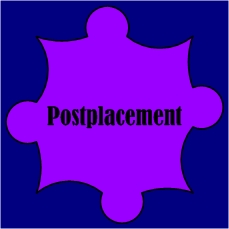Irish Adoptees Adopted Abroad Get Full Access To Records

“Irish people who were sent to Britain, the US and elsewhere for adoption when they were children as a result of decades-long Catholic hostility towards unmarried mothers will be entitled to unrestricted access to their birth certificates and other official records in Ireland for the first time thanks to a new law.
The Adoption Authority of Ireland, which has been charged with managing the scheme, has launched a campaign to reach adults who were adopted, formally or informally, overseas. It believes about 100,000 people will be affected by the new Birth Information and Tracing Act. The new law relates to all those born to parents within Ireland and adopted at home or abroad since the foundation of the state 100 years ago.
Anyone who wants to trace their birth information or that of their child or sibling can register with the AAI now and apply for records from October.
“Ireland is slightly late coming to this, which has been really disappointing and distressing for lots of people,” said Patricia Carey, the chief executive of the AAI. “It’s now recognised through this law that people have fundamental rights to information that’s held about them. It’s an identity rights issue.”
The new law will open the door to facts about the early lives of many people, but also close a dark chapter in Irish history when unmarried mothers were routinely forced into often brutal mother and baby homes run by nuns or sent to England or elsewhere to, according to one archbishop, “preserve their secret”.
The BBC presenter Nicky Campbell was born in 1961 to an unmarried Irish woman and adopted four days later by an Edinburgh family. He traced his parents many years ago and wrote a book about his experience, One of the Family.
Commenting on the new laws, he said of his experience: “It is a wonderful adventure, it is a difficult adventure and it is a necessary adventure. To understand where you came from is what is important, whether you are 20, 30, 50 or 60. It is a human right.”
Under the new law in Ireland, adoptees, siblings or parents have “legal entitlement to full and unrestricted access to birth certificates, birth, early life, care and medical information for any person who was adopted” or “boarded out” – a reference to informal adoptions that took place before 1953.
About 50,000 children were adopted since 1953, with thousands sent overseas, according to previous estimates.
In the first 10 days since the Birth Information and Tracing Act was passed, 470 people have registered. By the end of the year the AAI expects up to 4,000 to have come forward for records.
“We know already we are receiving a significant number of applications to join the register from the US and the UK,” said Carey.
While the AAI will not be able to provide records of Irish mothers who went to England or elsewhere to give birth, Carey said it had a good relationship with agencies in Britain where laws already exist to enable such tracing.
The authority believes most of those who register will be adopted children but they are also hoping those who suspect they may have a sibling and mothers come forward.
Records in Ireland show young mothers were among those who left the country. “We know from looking at our adoption files and records that, because of the traumatic experience they had maybe in relinquishing their child for adoption, they left Ireland shortly thereafter and never came back,” said Carey.
“We really want to reach people who may have left Ireland and may not have heard the message that this law has come in, and let them know that they can now register for contact; for no contact; or to share information.”
Before 1953 some children may have been sent to relatives or placed with other families through religious organisations under the “boarded out” system.
These informal adoptees and possibly siblings are all eligible to register for their information.
“People often suspect that there may be something else [in their family] we will be encouraging people if they think there may be a connection to adoption in Ireland, to their, parents or even their grandparents they can register,” said Carey.”
Irish people adopted abroad as children to get full access to their records
[The Guardian 7/21/22 by Lisa O’Carroll]
REFORM Puzzle Piece


Recent Comments